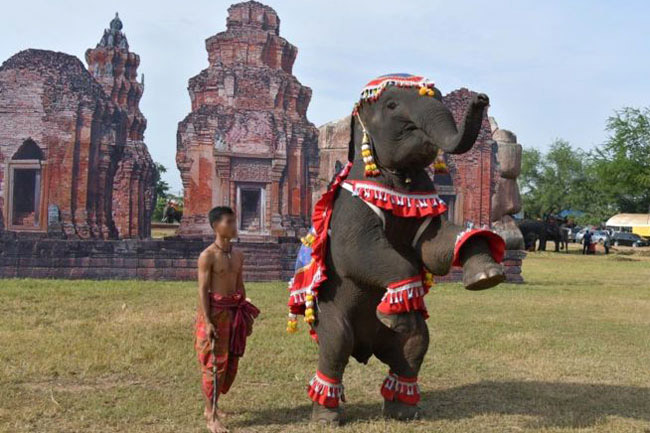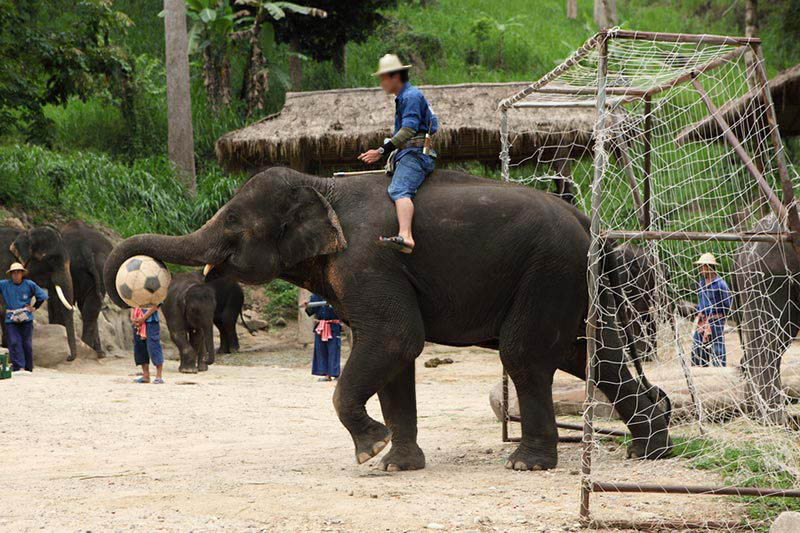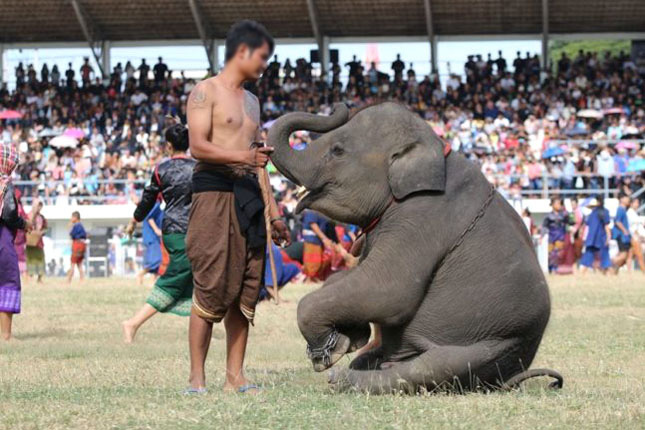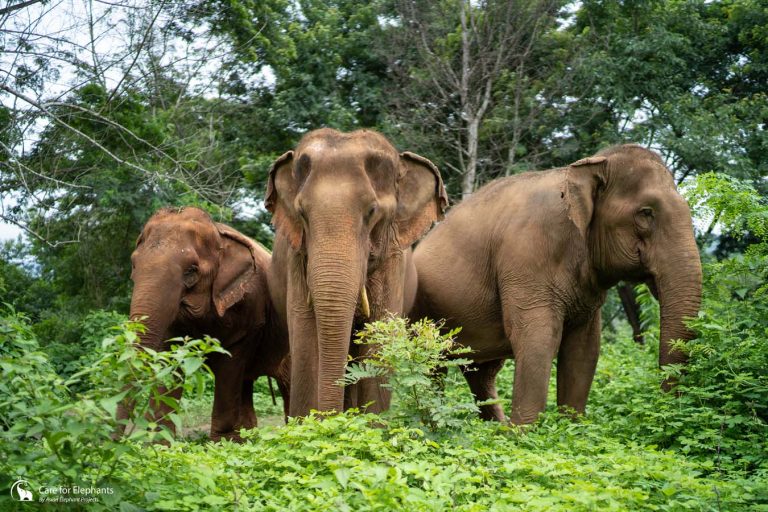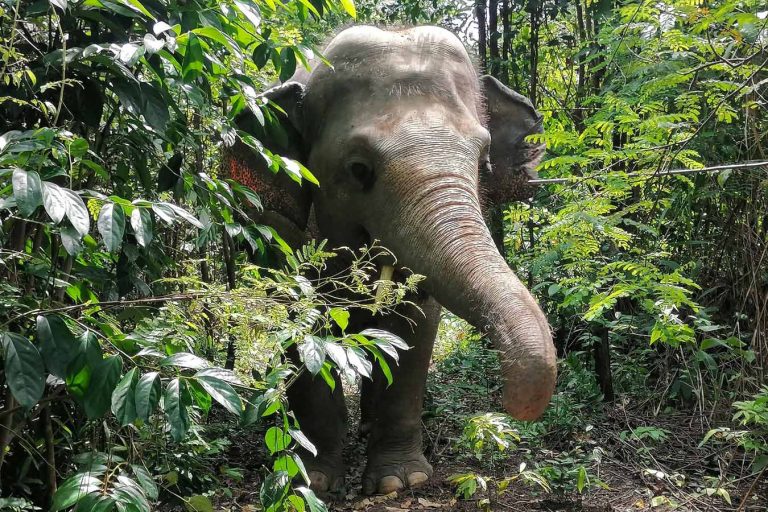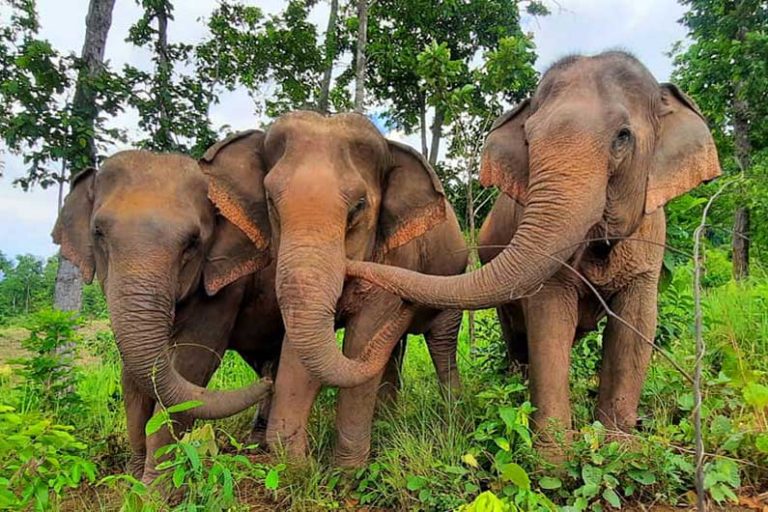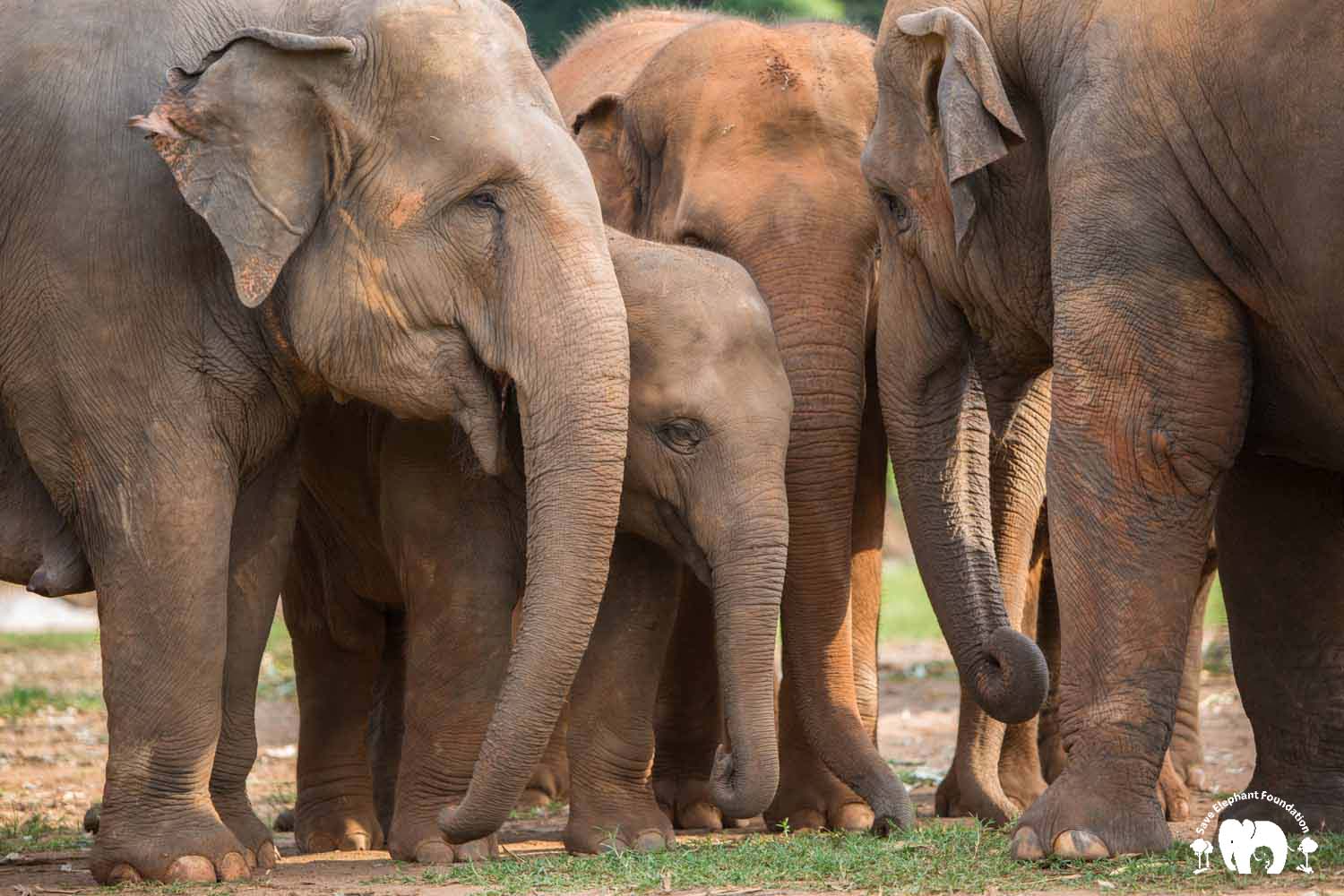Wild elephants in Thailand are very difficult to count given their densely forested habitat, but most experts agree there are between 1,500-3,000, with some on the ground estimates as low as 1,000. At the beginning of the 20th century, over 100,000 elephants are estimated to have roamed free in Thailand. The rapid demise in wild elephant numbers is due to loss of habitat resulting from an expanding human population and poaching.
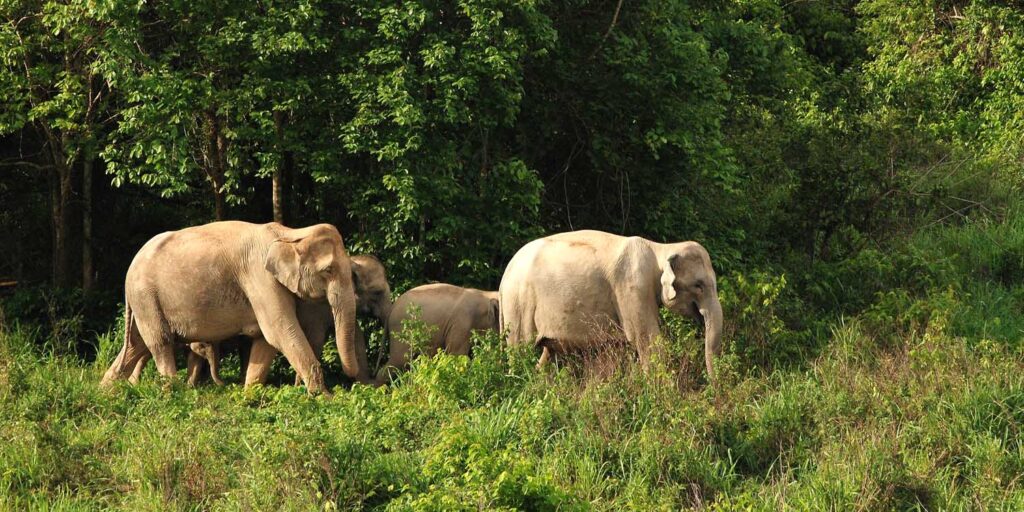
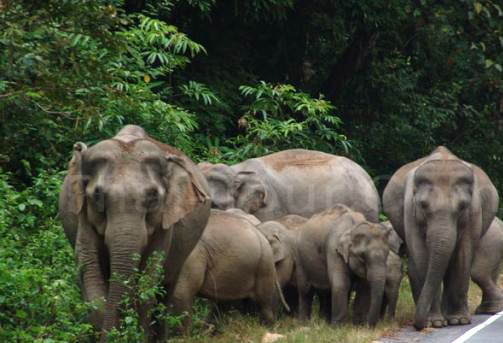
The captive elephant population used in the various forms of elephant tourism is estimated to be between 3000-4500.
Asian elephant experts argue that there is not nearly enough natural habitat left in Thailand for these captive elephants to be set free, and that the best chances of survival for the Asian Elephant – an endangered, keystone species – lies in preserving the remaining wild elephant populations and protecting the captive population by providing a home for them where they are respected and well care for.
After the 1989 ban on logging to prevent further deforestation in Thailand, elephant owners and their mahouts were left with the question of how to make a living for themselves and to cover the high costs of caring for their elephants. Many took their elephants to busy urban streets, selling overpriced fruit to tourists to feed to the elephants and have their photo taken with them. The ban also gave rise to a great number of elephant trekking camps where tourists partake in elephants riding, and watch elephants perform tricks. The truth about this commercial form of elephant tourism is ugly, with thousands of elephants being kept in cruel, abusive conditions.
It was recently reported that as many as 40% of tourists from the top 10 countries visiting Thailand were planning to do an elephant ride, which translates to a demand for around 12.8 million elephant rides in the country.
A growing number of elephant tourism operators advertise themselves as sanctuaries, but behind scenes the elephants continue to suffer.
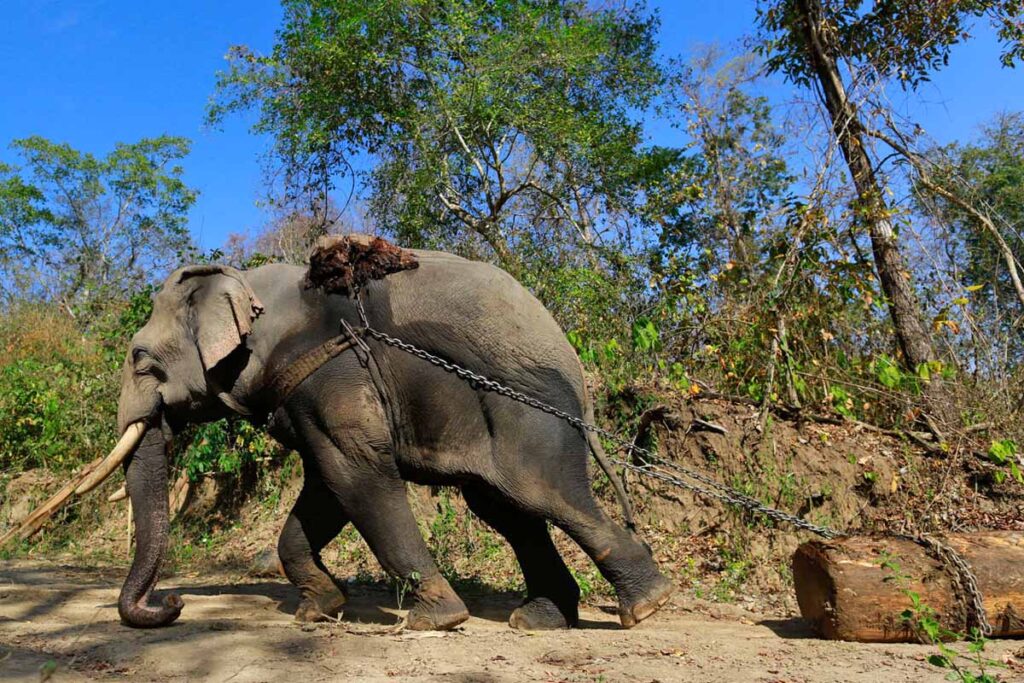
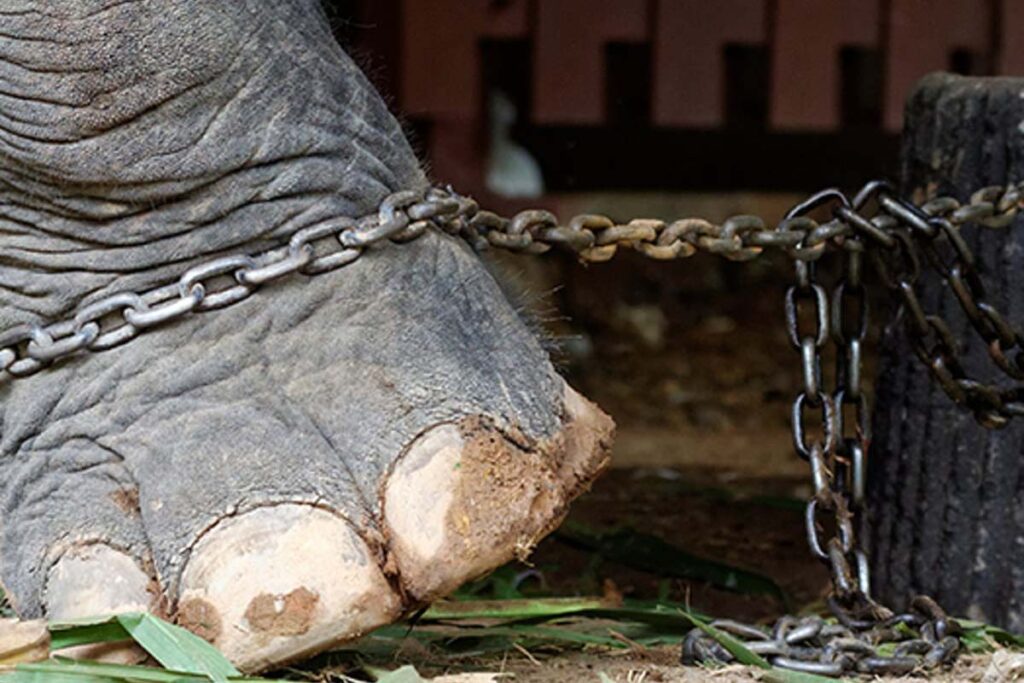
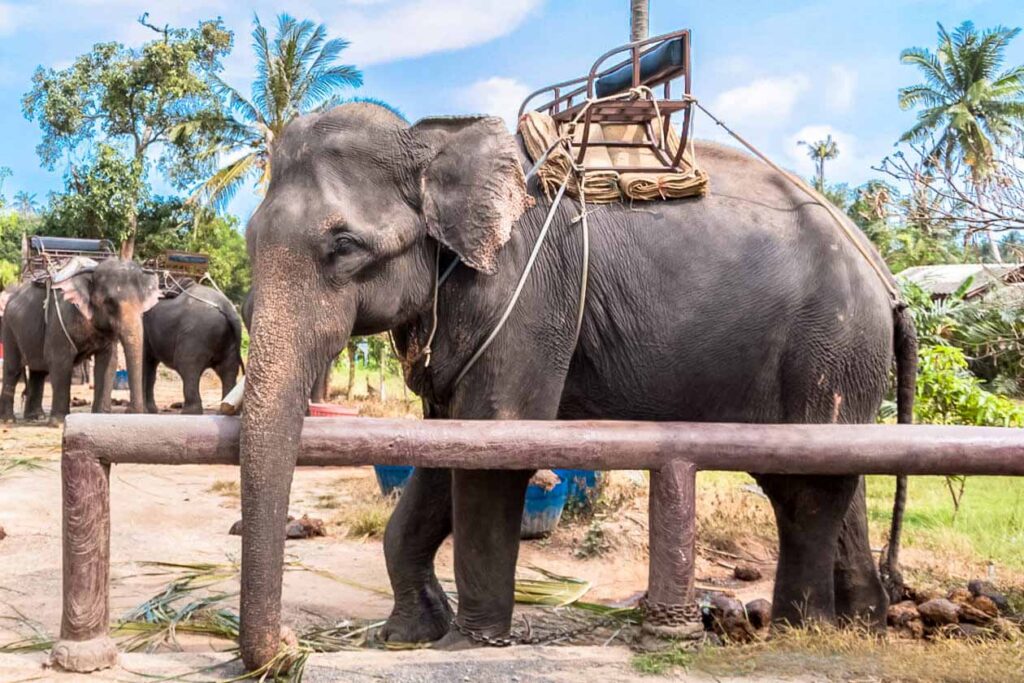
Elephants used for street begging commonly suffer injuries to their feet from the searing hot roads, damage to their hearing, dehydration and malnourishment, extreme psychological stress, illness from drinking dirty water and living amongst toxic pollution, as well as having falls and traffic accidents resulting in serious injuries and death.
The presence of elephants in urban areas has been outlawed in Thailand, but the practice is difficult to eradicate completely. Tourists should refrain from supporting in any way this dangerous and cruel practice.
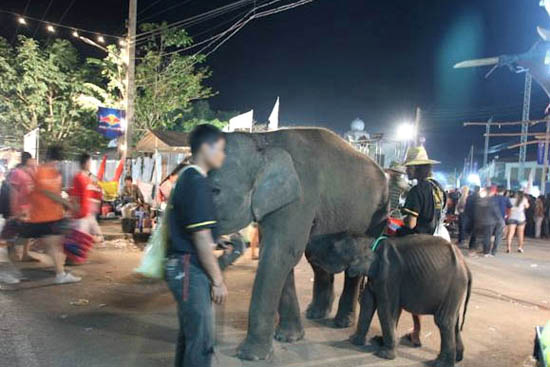
Many visitors to Thailand and other parts of Southeast Asia are unaware of the physical and psychological harm caused to elephants when ridden. Unfortunately, riding elephants is still one of the most popular tourist activities in Asia.
The prevalence of elephant riding increases the demand for captive elephants to be used as tourist attractions. As a result, more baby elephants must be captured from the wild (usually leading to the death of the mother and other adults), or sometimes bred for a life of suffering.
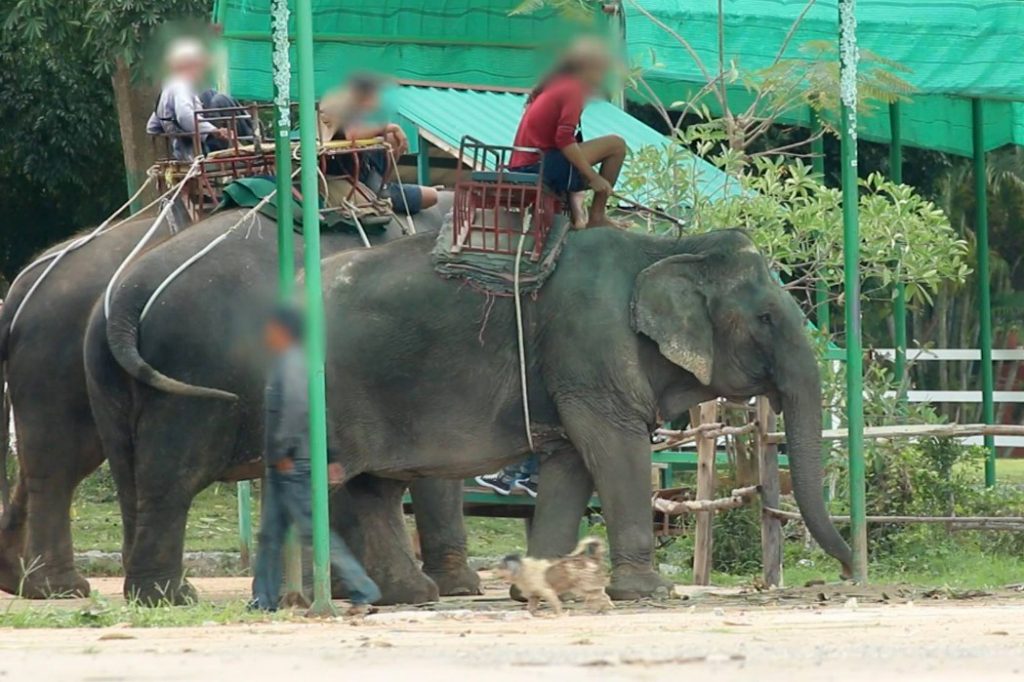
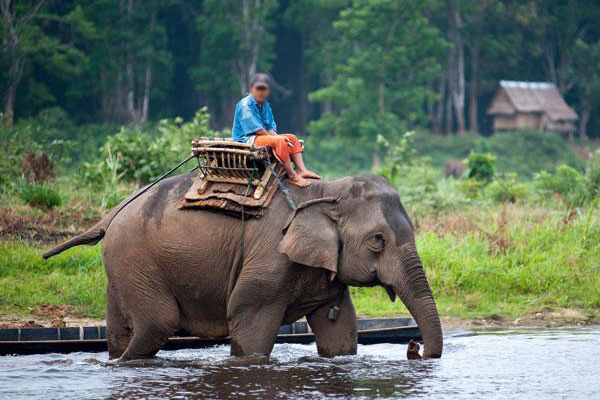
Conditions at elephant camps are often poor, with elephants being chained much of the day, no opportunity to interact with each other, unsatisfactory diet, and stress-inducing noise levels.
Elephants are not anatomically suited to bearing heavy loads, particularly when placed in the middle of their backs, as with elephant riding. Two average sized people, in addition to a heavy metal seat, can easily weigh more than 150kg, which experts believe is in excess of what can be safely tolerated by elephants. Considering that elephants can be subjected to being ridden for eight or more hours a day, this activity is not only injurious to their delicate, upward pointing vertebrae and their skin, but is highly stressful.
Elephant circuses or camps offering performances include unnatural and demeaning behaviour such as such as dancing, painting, playing football, walking tight ropes, standing on their hind legs, and imitating other human behaviour.
In order to get elephants to perform these tricks, a long and painful training process using punishment is used.
The noise, bright lights, and the unnatural positions that the elephants are coerced to hold their bodies in cause both physical and psychological harm. Elephants exploited in this way often develop stereotypical behaviour, such as swaying back and forth and bobbing their heads in repetitious cycles.
When not performing, the elephants are often kept on short chains with no opportunity to socialise, and denied adequate food and water.
